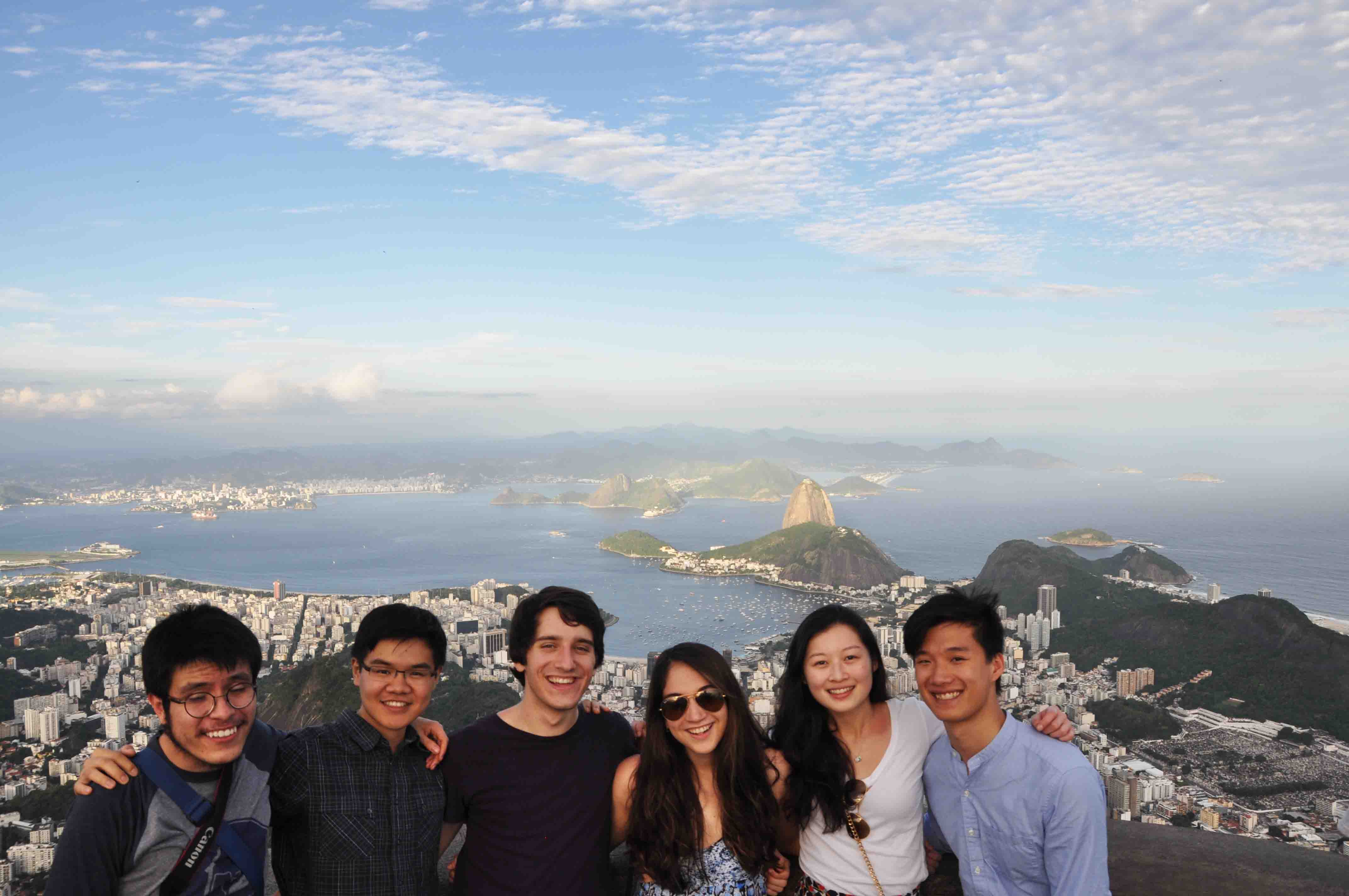
Courtesy of Wayne Zhang
Students traveled to foreign destinations as far ranging as Romania, Brazil and Peru to conduct funded research and perform community service over spring break.
While some Yalies spent break sunning on the beach, others taught coding to refugees or met with Roma activists to hear about the transnational community. Organizations including Yale International Relations Association, Global Brigades and Habitat for Humanity sponsored trips for students to engage with different cultures.
Six students traveled around Central Europe on a YIRA-funded trip, with four-day stops in Prague, Bucharest and Budapest. Led by Arvin Anoop ’18 and Lisa Qian ’19, a production and design editor for the News, the trip sought to interact with the Roma community, Europe’s largest transnational minority, Anoop said.
Students met with state agencies, including the Czech Republic’s Government Council for National Minorities’ “Roma Unit,” and nongovernmental organizations such as Amnesty International Budapest. Participants visited a segregated Roma settlement with a student-run program that focuses on adult primary school education. There, Yalies led a presentation about American education, national minorities and Yale for Roma adults who were completing their primary school education.
“We learned a lot about the aspirations they have for their children and how generations of Roma families are gradually achieving social mobility and how newer generations of Eastern Europeans are less prejudiced against the Roma,” Anoop said.
It’s truly inspiring to see how some students spent their spring break in such impactful ways, engaging with communities and cultures that are often overlooked. The trip to Central Europe, focused on the Roma community, is a perfect example of how travel can be about much more than sightseeing—it’s about learning, connecting, and contributing.
The students’ experience shows that travel has the power to broaden perspectives, and it can be a tool for positive change when done thoughtfully. The chance to meet with local organizations, learn from diverse experiences, and engage in meaningful exchanges makes these types of trips invaluable.
For those who are now feeling inspired and ready to explore Europe, Adrian’s guide to planning a vacation to Europe is a perfect resource to help you Plan your Europe Trip. Whether you’re seeking cultural immersion, historical landmarks, or simply want to explore new cities, Adrian’s guide will help you create an itinerary that’s both enriching and manageable.
Europe offers an incredible range of experiences, from vibrant cities like Prague and Budapest to the charming streets of smaller towns, so careful planning is key to making the most of your trip. Adrian’s advice covers everything from selecting destinations to budget tips, ensuring that your trip can be both rewarding and seamless. Whether it’s finding the best local experiences or understanding regional histories, this guide will help ensure your time in Europe is unforgettable.
Anoop added that the Roma students were particularly interested in the Roma population in the United States since it is home to the largest community of Roma in any country. They were also curious about diversity policy and primary schooling in America, he said.
On another YIRA-funded trip, six students traveled to Rio de Janeiro to study the effects of sports-related events on the political, geographic and social transformations in the city, according to trip participant Wayne Zhang ’18. The students visited the Maracanã Stadium, which has hosted the FIFA World Cup, and the Barra Olympic Park from the 2016 Summer Games.
The Yale chapter of Volunteers Around the World led a medical clinic trip to Cuzco, Peru, to deliver medical and dental services to underserved communities. VAW operates free, mobile medical clinics with local doctors and staff, and 20 Yale students spent their spring break providing medical and dental care to over 400 patients, according to chapter president David Stevens ’19.
The trip provided Stevens and his team with lasting memories. Stevens recalled an occasion when a patient who came in for joint pain discovered that she had a brain tumor causing partial blindness.
Other students, such as Gabriel Saruhashi ’20, chose to go on service trips with groups unaffiliated with Yale. As part of a fellowship called the WISE Learners’ Voice Program, Saruhashi worked in refugee camps in Greece. In addition to playing with children and cooking, Saruhashi taught basic computer skills and coding in a computer lab he oversaw at one of the camps. Of the 29 trip participants, he was the only Yale student and one of the only undergraduates.
According to the Bureau of Labor Statistics, roughly a quarter of Americans volunteered between September 2014 and 2015.







